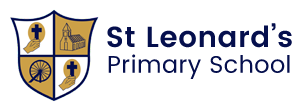Teaching of history equips pupils to ask perceptive questions, to think critically and develop perspective and judgement. Throughout their time in primary school, pupils build a clear chronological framework of the development of societies from ancient to modern times by making links across the different study units, as well as making modern links to themselves. They are given opportunities to investigate local history as well as learning about and interpreting the past using a range of primary sources. Topics have been carefully selected to support the teaching of chronology, so children are learning sequentially – being able to build their own timeline of history as they progress through our school.
Through our creative history curriculum, pupils have excellent opportunities to develop their historical knowledge through creative and engaging teaching and learning experiences, including visits and workshops. They do this through exploring and understanding important aspects of local, national and world history and the key events and chronology of cultures other than their own to enhance learning.
We intend for our children to be able to apply their historical knowledge across all the curriculum and within their daily lives, making cross-curricular connections to other subjects, primarily maths and English. By implementing a high-quality history curriculum, we strive to inspire pupils’ understanding of people’s lives, change, diversity and relationships between different groups.


